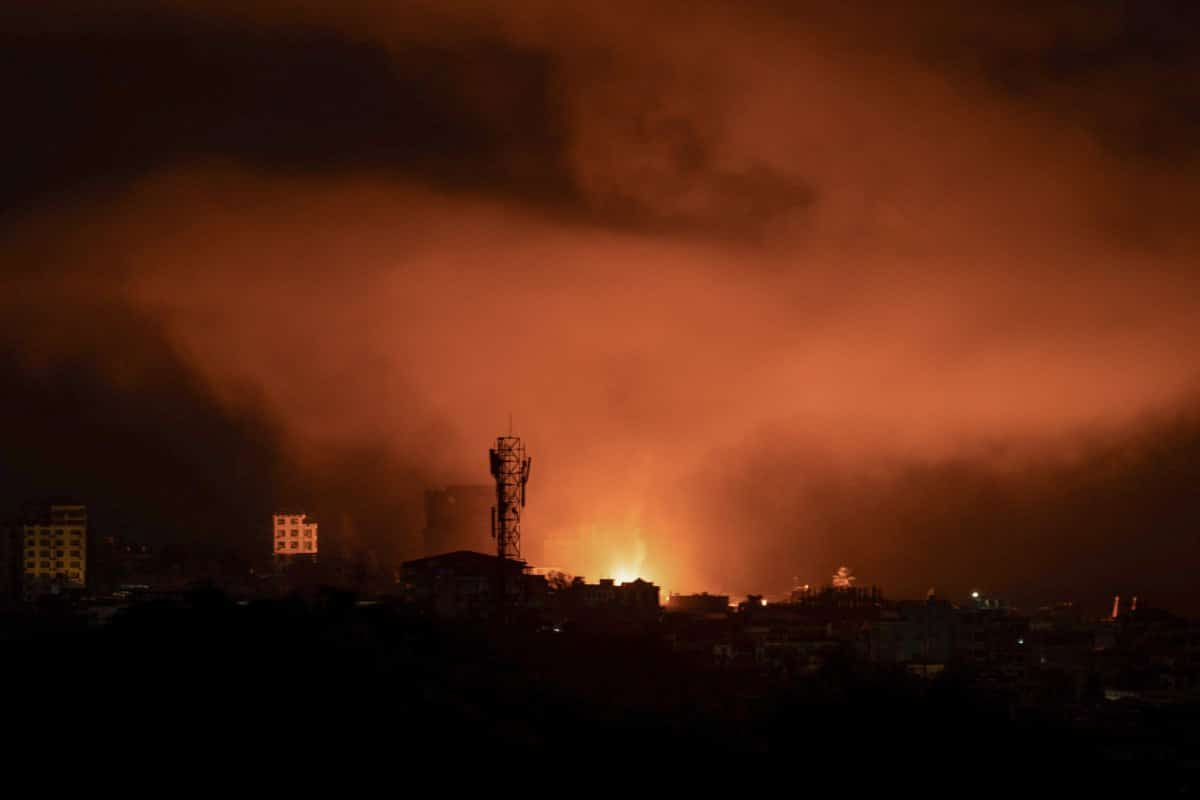North Korea has blown up parts of roads and railway lines heading for the border dividing the peninsula, according to South Korea’s military.
Pyongyang “conducted detonations” that Seoul believes were attempts to cut off transport routes linking North Korea to the South at around noon local time, Seoul’s Joint Chiefs of Staff said in a statement reported by local media on Tuesday.
The “explosive work” was telegraphed last week by the North Korean army, which said it planned to “completely separate” the territories of the two Koreas in response to “the imminent danger of war;” this language suggested the tense relations between the two neighbors likely would sour further.
North Korea “is carrying out additional activities using heavy equipment,” the Joint Chiefs of Staff said. They added that the South had fired warning shots on its side of the Military Demarcation Line, the de facto inter-Korean border buffered on each side by a 2.5-mile wide Demilitarized Zone.
In a later statement published by South Korea‘s Yonhap News Agency, Seoul said it condemned the destruction of routes north of the border. It was “a clear violation of an inter-Korean agreement and a very abnormal act,” the South Korean government said.
The two Koreas are connected by roads and railroads in the west and east, known as Gyeongui and Donghae, respectively, which had already been targeted for demolition earlier this year by Kim Jong Un‘s regime.
North Korea’s supreme leader, who took power in 2011, has led a shift away from an official policy of reconciliation with the South. He has declared Seoul his country’s “principal enemy,” in what has marked the worst point in relations on the peninsula for years.
South Korea and neighboring Japan, two major U.S. treaty allies in the region, have expressed grave concerns about the North’s military activity—repeated missile tests and an opaque nuclear program. Calling the moves a severe threat to their national security, both have turned to the United States for additional support, angering Pyongyang in the process.
North Korea also has drawn closer to Russia, already a pariah for many Western countries after its full-scale invasion of Ukraine more than two years ago. On Sunday, Ukrainian President Volodymyr Zelensky said North Korean troops were fighting alongside Russians in Ukraine, in a significant escalation of the conflict.

South Korean army soldiers patrol along the barbed-wire fence in Paju, South Korea, near the border with North Korea, October 14, 2024. North Korea has blown up parts of roads and railway lines heading for the border dividing the peninsula, according to South Korea’s military.
AP Photo/Ahn Young-joon
Pyongyang said last week that it had notified the U.S.-led United Nations Command about its demolition plans near the DMZ so as not to cause miscalculations at what is one of the most heavily fortified borders in the world.
The move “is a self-defensive measure for inhibiting war,” North Korea’s military said.
The U.S. State Department told Newsweek at the time that it was in close contact with South Korea, Japan, “and other allies and partners about how to best address the challenges posed by the DPRK,” referring to the Democratic People’s Republic of Korea, the North’s official name.
The U.S. has “no hostile intent” toward North Korea, a State Department spokesperson said.
Amid a war of words over an alleged drone incursion in Pyongyang over the weekend, North Korea said it had ordered artillery units at the border to be ready to fire, while the South said any attack on its people would lead to “the end of the North Korean regime.”
“The possibility of North Korea launching a war has always existed since the Korean War,” Shin Won-sik, South Korea’s national security adviser, told public broadcaster KBS on Sunday. “I believe North Korea will not start a war unless it decides to commit suicide.”
North Korea’s embassy in Beijing did not immediately respond to a Newsweek request for comment.
Update 10/15/24, 4:10 a.m. ET: This breaking news story was updated with additional information.








